

Affiliated Faculty
 Kimberly Jacob Arriola, PhD, MPH is a Professor in BSHE and Senior Associate Dean for Academic Affairs at RSPH. Dr. Arriola has spent her entire career at Emory, with all of her scholarship devoted to improving the health of African Americans and other underserved populations. With an emphasis on racial disparities in chronic disease prevention and access to care, she has received continued funding to develop and evaluate culturally-sensitive interventions and has worked closely with national and community-based organizations to design and conduct program evaluations. e‑mail: kjacoba@emory.edu
Kimberly Jacob Arriola, PhD, MPH is a Professor in BSHE and Senior Associate Dean for Academic Affairs at RSPH. Dr. Arriola has spent her entire career at Emory, with all of her scholarship devoted to improving the health of African Americans and other underserved populations. With an emphasis on racial disparities in chronic disease prevention and access to care, she has received continued funding to develop and evaluate culturally-sensitive interventions and has worked closely with national and community-based organizations to design and conduct program evaluations. e‑mail: kjacoba@emory.edu
 Kelli Komro, PhD, MPH, is a Professor of Behavioral Sciences and Health Education and Epidemiology at the Rollins School of Public Health, Emory University. She is a social and behavioral epidemiologist with two decades’ experience as PI or Co-PI of NIH-funded large-scale group-randomized trials evaluating effects of community and policy strategies to promote child and adolescent health and reduce health disparities. Each trial focused on a specific underserved population of youth, both in the US and internationally. NIH has continually funded her research since the 1990s and she has published in the leading public health, prevention science, preventive medicine, addiction and health behavior journals. She received her PhD from the Division of Epidemiology and Community Health, School of Public Health, University of Minnesota. e‑mail: kkomro@emory.edu
Kelli Komro, PhD, MPH, is a Professor of Behavioral Sciences and Health Education and Epidemiology at the Rollins School of Public Health, Emory University. She is a social and behavioral epidemiologist with two decades’ experience as PI or Co-PI of NIH-funded large-scale group-randomized trials evaluating effects of community and policy strategies to promote child and adolescent health and reduce health disparities. Each trial focused on a specific underserved population of youth, both in the US and internationally. NIH has continually funded her research since the 1990s and she has published in the leading public health, prevention science, preventive medicine, addiction and health behavior journals. She received her PhD from the Division of Epidemiology and Community Health, School of Public Health, University of Minnesota. e‑mail: kkomro@emory.edu
 Regine Haardörfer, PhD, is a Research Assistant Professor at the Rollins School of Public Health of Emory University in the Department of Behavioral Sciences and Health Education. She received her PhD from Georgia State University in Education Policy Studies: Research, Measurement, and Statistics. She has extensive training and experience in the analysis of social science data, including the use of multi-level modeling techniques and structural equation modeling for both cross-sectional and longitudinal applications. Dr. Haardörfer’s research interests include measurement of healthy behaviors as well as intervention studies to foster healthy behaviors. She supports the Emory Prevention Research Center in various projects including the Healthy Homes/Healthy Families study. She also is part of the Smoke Free Homes project which aims to create smoke-free homes in low-income households. In addition, she teaches a variety of statistics classes at the master’s and doctoral level ranging from introductory courses to multi-level and structural equation modeling. e‑mail: regine.haardoerfer@emory.edu
Regine Haardörfer, PhD, is a Research Assistant Professor at the Rollins School of Public Health of Emory University in the Department of Behavioral Sciences and Health Education. She received her PhD from Georgia State University in Education Policy Studies: Research, Measurement, and Statistics. She has extensive training and experience in the analysis of social science data, including the use of multi-level modeling techniques and structural equation modeling for both cross-sectional and longitudinal applications. Dr. Haardörfer’s research interests include measurement of healthy behaviors as well as intervention studies to foster healthy behaviors. She supports the Emory Prevention Research Center in various projects including the Healthy Homes/Healthy Families study. She also is part of the Smoke Free Homes project which aims to create smoke-free homes in low-income households. In addition, she teaches a variety of statistics classes at the master’s and doctoral level ranging from introductory courses to multi-level and structural equation modeling. e‑mail: regine.haardoerfer@emory.edu
 Terry Hartman, PhD, MPH, RD is a Professor of Epidemiology at the Department of Epidemiology at The Rollins School of Public Health, Emory University. She completed her doctoral work at the University of Minnesota with a focus in nutritional epidemiology. She was selected as a Cancer Prevention Fellow by the National Cancer Institute, completed a Master’s of Public Health at the Harvard School of Public Health as part of this experience, and worked for several years at the National Cancer Institute in Bethesda, Maryland. Prior to relocating to Emory in January, 2013, she was Professor of Nutrition and Director of the Diet Assessment Center at The Pennsylvania State University. As a nutrition epidemiologist, she has approximately 20 years of experience exploring associations between nutritional exposures and chronic disease outcomes and has designed and collaborated on multi-disciplinary trials to work toward understanding the mechanisms for these associations. Her research is focused on the role of diet and nutrition in the etiology and prevention of chronic diseases—especially cancer—and the development and application of improved dietary assessment methods in chronic disease research. e‑mail: tjhartm@emory.edu
Terry Hartman, PhD, MPH, RD is a Professor of Epidemiology at the Department of Epidemiology at The Rollins School of Public Health, Emory University. She completed her doctoral work at the University of Minnesota with a focus in nutritional epidemiology. She was selected as a Cancer Prevention Fellow by the National Cancer Institute, completed a Master’s of Public Health at the Harvard School of Public Health as part of this experience, and worked for several years at the National Cancer Institute in Bethesda, Maryland. Prior to relocating to Emory in January, 2013, she was Professor of Nutrition and Director of the Diet Assessment Center at The Pennsylvania State University. As a nutrition epidemiologist, she has approximately 20 years of experience exploring associations between nutritional exposures and chronic disease outcomes and has designed and collaborated on multi-disciplinary trials to work toward understanding the mechanisms for these associations. Her research is focused on the role of diet and nutrition in the etiology and prevention of chronic diseases—especially cancer—and the development and application of improved dietary assessment methods in chronic disease research. e‑mail: tjhartm@emory.edu
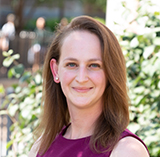 Alexandra B. Morshed, PhD, MS, is a Research Assistant Professor in the Department of Behavioral, Social and Health Education Sciences at Rollins School of Public Health. Dr. Morshed is an implementation scientist with a substantive focus on prevention of obesity and related chronic diseases, and a methodological focus on systems science methods. She has more than 10 years of experience in public health research and practice, primarily focused on implementing interventions in vulnerable populations, policy translation, and capacity building and knowledge expansion in dissemination and implementation (D&I) science. Her research largely utilizes a D&I lens based on the recognition that research-to-practice gaps exist and contribute to disease prevalence and disparities. She carried out her doctoral and postdoctoral training at Washington University in St. Louis and earned a master of science from Wageningen University in the Netherlands. e‑mail: alexandra.morshed@emory.edu
Alexandra B. Morshed, PhD, MS, is a Research Assistant Professor in the Department of Behavioral, Social and Health Education Sciences at Rollins School of Public Health. Dr. Morshed is an implementation scientist with a substantive focus on prevention of obesity and related chronic diseases, and a methodological focus on systems science methods. She has more than 10 years of experience in public health research and practice, primarily focused on implementing interventions in vulnerable populations, policy translation, and capacity building and knowledge expansion in dissemination and implementation (D&I) science. Her research largely utilizes a D&I lens based on the recognition that research-to-practice gaps exist and contribute to disease prevalence and disparities. She carried out her doctoral and postdoctoral training at Washington University in St. Louis and earned a master of science from Wageningen University in the Netherlands. e‑mail: alexandra.morshed@emory.edu
 David H. Howard, PhD, is a faculty member in the Department of Health Policy and Management at Emory University. A health economist by training, Dr. Howard’s research employs economics and statistics to better understand physician decision-making and its implications for public policy. Dr. Howard’s current focus is on how negative results from clinical trials and “do less” recommendations from guidelines influence practice patterns. Dr. Howard received his doctorate in health policy from Harvard University in 2000. e‑mail: david.howard@emory.edu
David H. Howard, PhD, is a faculty member in the Department of Health Policy and Management at Emory University. A health economist by training, Dr. Howard’s research employs economics and statistics to better understand physician decision-making and its implications for public policy. Dr. Howard’s current focus is on how negative results from clinical trials and “do less” recommendations from guidelines influence practice patterns. Dr. Howard received his doctorate in health policy from Harvard University in 2000. e‑mail: david.howard@emory.edu
 Lauren E. McCullough, PhD, is currently Rollins Assistant Professor in the Epidemiology Department and member of the Winship Cancer Institute. Dr. McCullough received her BA from Vanderbilt University (2005), MSPH from Meharry Medical College (2007), and PhD in Epidemiology from the University of North Carolina at Chapel Hill (2013). She was recently selected as a 2018 Transdisciplinary Research in Cancer and Energetics Fellow and received the Society for Epidemiologic Research 2019 Brian MacMahon Early Career Award for her work in breast cancer disparities. Dr. McCullough’s overarching research interests are in the life-course epidemiology of breast cancer, specifically the contributions of obesity and physical inactivity to the tumor epigenome and microenvironment, as well as disparities in cancer outcomes. Her research program integrates molecular epidemiology, epigenetics and other biomarkers for disease risk and progression; environmental and reproductive epidemiology; disparities research; and causal inference methods. The abiding goal of Dr. McCullough’s research is to improve cancer outcomes among low-income and minority populations by identifying molecular targets for behavioral and therapeutic intervention. e‑mail: lauren.mccullough@emory.edu
Lauren E. McCullough, PhD, is currently Rollins Assistant Professor in the Epidemiology Department and member of the Winship Cancer Institute. Dr. McCullough received her BA from Vanderbilt University (2005), MSPH from Meharry Medical College (2007), and PhD in Epidemiology from the University of North Carolina at Chapel Hill (2013). She was recently selected as a 2018 Transdisciplinary Research in Cancer and Energetics Fellow and received the Society for Epidemiologic Research 2019 Brian MacMahon Early Career Award for her work in breast cancer disparities. Dr. McCullough’s overarching research interests are in the life-course epidemiology of breast cancer, specifically the contributions of obesity and physical inactivity to the tumor epigenome and microenvironment, as well as disparities in cancer outcomes. Her research program integrates molecular epidemiology, epigenetics and other biomarkers for disease risk and progression; environmental and reproductive epidemiology; disparities research; and causal inference methods. The abiding goal of Dr. McCullough’s research is to improve cancer outcomes among low-income and minority populations by identifying molecular targets for behavioral and therapeutic intervention. e‑mail: lauren.mccullough@emory.edu
 Richard A. Goodman, MD, JD, MPH, is Director of Emory University’s Preventive Medicine Residency Program. He also serves as Professor of Medicine in Emory’s Department of Family and Preventive Medicine, and Professor in Emory’s Rollins School of Public Health. From 1978 – 2015, he worked for the U.S. Department of Health and Human Services (DHHS) and the Centers for Disease Control and Prevention (CDC) in leadership and staff positions. Following the completion of his internal medicine residency in 1978, Dr. Goodman joined CDC’s Epidemic Intelligence Service Program. Other staff and leadership positions were Senior Medical Advisor, DHHS’ Office of the Assistant Secretary for Health and CDC’s National Center for Chronic Disease Prevention and Health Promotion; Editor-in-Chief of CDC’s Morbidity and Mortality Weekly Report (MMWR) Series; Associate Director of CDC’s Epidemiology Program Office; and founding Co-Director of CDC’s Public Health Law Program. Dr. Goodman received his medical degree and completed a residency in internal medicine at the University of Michigan in Ann Arbor, and completed a fellowship in geriatric medicine and earned a law degree at Emory University. He is Board Certified in Internal Medicine, Preventive Medicine, and Geriatric Medicine. A Commissioned Officer in the U.S. Public Health Service during 1978 – 2006, Dr. Goodman held the grade of Medical Director (CAPTAIN: O6). e‑mail: rgood02@emory.edu
Richard A. Goodman, MD, JD, MPH, is Director of Emory University’s Preventive Medicine Residency Program. He also serves as Professor of Medicine in Emory’s Department of Family and Preventive Medicine, and Professor in Emory’s Rollins School of Public Health. From 1978 – 2015, he worked for the U.S. Department of Health and Human Services (DHHS) and the Centers for Disease Control and Prevention (CDC) in leadership and staff positions. Following the completion of his internal medicine residency in 1978, Dr. Goodman joined CDC’s Epidemic Intelligence Service Program. Other staff and leadership positions were Senior Medical Advisor, DHHS’ Office of the Assistant Secretary for Health and CDC’s National Center for Chronic Disease Prevention and Health Promotion; Editor-in-Chief of CDC’s Morbidity and Mortality Weekly Report (MMWR) Series; Associate Director of CDC’s Epidemiology Program Office; and founding Co-Director of CDC’s Public Health Law Program. Dr. Goodman received his medical degree and completed a residency in internal medicine at the University of Michigan in Ann Arbor, and completed a fellowship in geriatric medicine and earned a law degree at Emory University. He is Board Certified in Internal Medicine, Preventive Medicine, and Geriatric Medicine. A Commissioned Officer in the U.S. Public Health Service during 1978 – 2006, Dr. Goodman held the grade of Medical Director (CAPTAIN: O6). e‑mail: rgood02@emory.edu
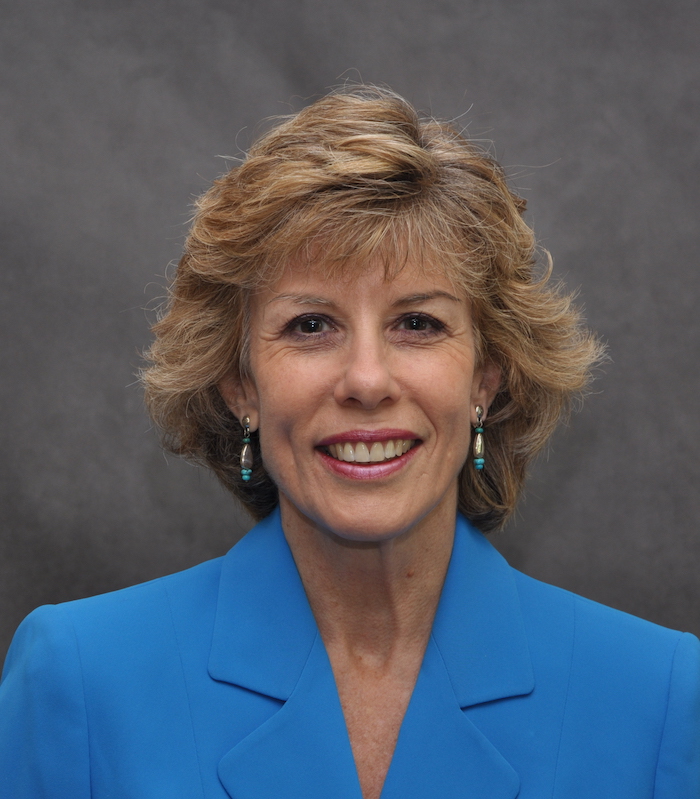 Theresa Wicklin Gillespie, PhD, MA, FAAN, is a Professor in the Department of Surgery and Department of Hematology and Medical Oncology, Emory University School of Medicine and Clinical Associate in the School of Nursing, and full member of the Winship Cancer Institute. She also co-leads the Emory Center for AIDS Research (CFAR) Working Group on HIV+ Malignancies. Dr. Gillespie has extensive experience in clinical oncology, clinical trials, and cancer research. Clinically, she has expertise in breast, prostate, lung, and pancreatic cancers as well as other solid tumors and hematologic malignancies, and a range of clinical trials. She has served in leadership roles in the Winship Cancer Institute for the past two decades, including Director of Clinical Research and Deputy Director, and as Co-Director of the Winship Cancer Institute’s Health Disparities Initiative. She previously was Director of Health Services Research at the Atlanta Veterans Affairs Medical Center. As Principal Investigator and Co-Investigator on numerous grants, Dr. Gillespie has been funded by the NCI and other NIH institutes; CDC; DOD; Veterans Affairs; American Cancer Society, Avon, and Movember Foundation. Her funded studies have focused on disparities experienced by urban underserved, rural, minority, and under-represented populations across the continuum of care, decision-making by patients, the public and clinicians; risk communication; quality and outcomes in healthcare; and interventions to improve risk comprehension, guideline concordant care, and outcomes. Globally, she has been funded by the NCI, Gates Foundation, Fogarty Institute, and American College of Surgeons to pursue research studies in low-and-middle-income countries, including India and Ethiopia. Dr. Gillespie teaches in the Schools of Medicine, Public Health, and Nursing at Emory and has published and presented extensively for more than 30 years. e‑mail: tgilles@emory.edu
Theresa Wicklin Gillespie, PhD, MA, FAAN, is a Professor in the Department of Surgery and Department of Hematology and Medical Oncology, Emory University School of Medicine and Clinical Associate in the School of Nursing, and full member of the Winship Cancer Institute. She also co-leads the Emory Center for AIDS Research (CFAR) Working Group on HIV+ Malignancies. Dr. Gillespie has extensive experience in clinical oncology, clinical trials, and cancer research. Clinically, she has expertise in breast, prostate, lung, and pancreatic cancers as well as other solid tumors and hematologic malignancies, and a range of clinical trials. She has served in leadership roles in the Winship Cancer Institute for the past two decades, including Director of Clinical Research and Deputy Director, and as Co-Director of the Winship Cancer Institute’s Health Disparities Initiative. She previously was Director of Health Services Research at the Atlanta Veterans Affairs Medical Center. As Principal Investigator and Co-Investigator on numerous grants, Dr. Gillespie has been funded by the NCI and other NIH institutes; CDC; DOD; Veterans Affairs; American Cancer Society, Avon, and Movember Foundation. Her funded studies have focused on disparities experienced by urban underserved, rural, minority, and under-represented populations across the continuum of care, decision-making by patients, the public and clinicians; risk communication; quality and outcomes in healthcare; and interventions to improve risk comprehension, guideline concordant care, and outcomes. Globally, she has been funded by the NCI, Gates Foundation, Fogarty Institute, and American College of Surgeons to pursue research studies in low-and-middle-income countries, including India and Ethiopia. Dr. Gillespie teaches in the Schools of Medicine, Public Health, and Nursing at Emory and has published and presented extensively for more than 30 years. e‑mail: tgilles@emory.edu
 Victoria Phillips, DPhil, is an Associate Professor at the Rollins School of Public Health (RSPH) of Emory University in the Department of Health Policy and Management. She has taught an introductory course on health economics and courses on economic evaluation for over two decades. Her research interests include cost-effectiveness study design, methodology and evaluating care models for people who are chronically ill people. She has received numerous federal grants and served as a Guest Researcher/Evaluation Specialist for three Divisions at the CDC. She is currently working on several projects testing social media interventions to link young African American males who have sex with men with HIV testing and treatment. Dr. Phillips earned her undergraduate degree in Economics, summa cum laude with departmental honors, from Tulane University in New Orleans, Louisiana. She obtained her DPhil in economics in 1991 from Pembroke College, Oxford England. e‑mail: vphil01@emory.edu
Victoria Phillips, DPhil, is an Associate Professor at the Rollins School of Public Health (RSPH) of Emory University in the Department of Health Policy and Management. She has taught an introductory course on health economics and courses on economic evaluation for over two decades. Her research interests include cost-effectiveness study design, methodology and evaluating care models for people who are chronically ill people. She has received numerous federal grants and served as a Guest Researcher/Evaluation Specialist for three Divisions at the CDC. She is currently working on several projects testing social media interventions to link young African American males who have sex with men with HIV testing and treatment. Dr. Phillips earned her undergraduate degree in Economics, summa cum laude with departmental honors, from Tulane University in New Orleans, Louisiana. She obtained her DPhil in economics in 1991 from Pembroke College, Oxford England. e‑mail: vphil01@emory.edu
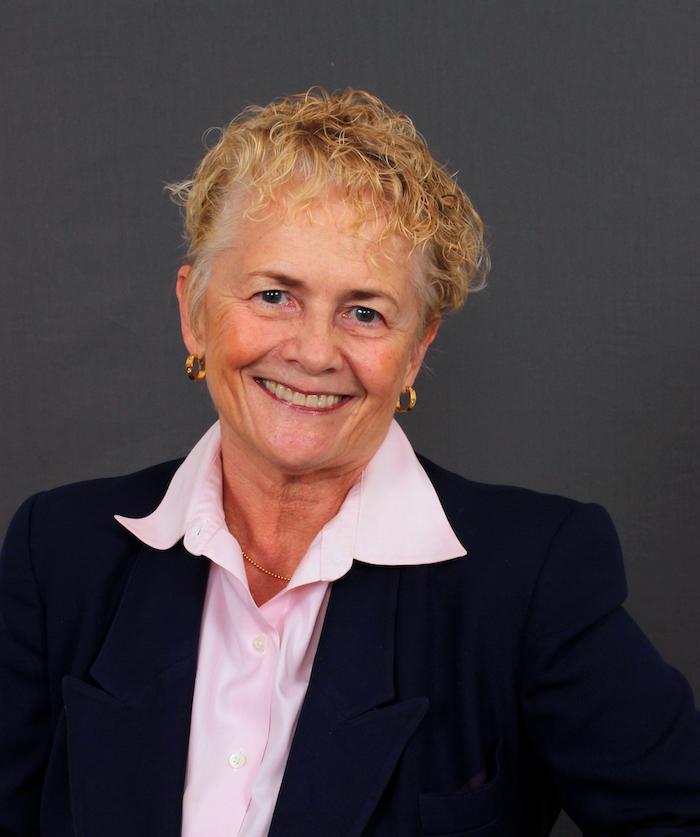 E. Kathleen Adams, PhD, is Professor in HPM at the RSPH where she has taught and completed health services research for over two decades. She received her PhD in Economics from the University of Colorado in Boulder, CO in 1979 and has applied economic analytic tools to emerging policy questions in both private and public organizations since that time. Her research focuses on low-income and vulnerable populations and on Medicaid policies and issues. For over 15 years she worked with the Division of Reproductive Health at the CDC analyzing insurance transitions during pregnancy, the costs of smoking during pregnancy and the effects of cigarette taxes and other tobacco control policies on maternal smoking. She has completed externally funded research on the effects of the Breast and Cervical Cancer and Prevention Act, the Affordable Care Act, Medicaid managed care, provider reimbursement and eligibility expansions as well as states’ scope of practice laws for Certified Nurse Midwives. She is currently analyzing the effects of expanding elementary school based health centers on children’s preventive care and Medicaid costs as well as leading the evaluation of the Medicaid family planning waiver, P4HB® in Georgia. e‑mail: eadam01@emory.edu
E. Kathleen Adams, PhD, is Professor in HPM at the RSPH where she has taught and completed health services research for over two decades. She received her PhD in Economics from the University of Colorado in Boulder, CO in 1979 and has applied economic analytic tools to emerging policy questions in both private and public organizations since that time. Her research focuses on low-income and vulnerable populations and on Medicaid policies and issues. For over 15 years she worked with the Division of Reproductive Health at the CDC analyzing insurance transitions during pregnancy, the costs of smoking during pregnancy and the effects of cigarette taxes and other tobacco control policies on maternal smoking. She has completed externally funded research on the effects of the Breast and Cervical Cancer and Prevention Act, the Affordable Care Act, Medicaid managed care, provider reimbursement and eligibility expansions as well as states’ scope of practice laws for Certified Nurse Midwives. She is currently analyzing the effects of expanding elementary school based health centers on children’s preventive care and Medicaid costs as well as leading the evaluation of the Medicaid family planning waiver, P4HB® in Georgia. e‑mail: eadam01@emory.edu
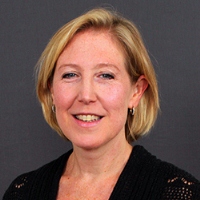 Sarah C. Blake, PhD, MA, is an Assistant Research Professor in the Department of Health Policy & Management in RSPH at Emory University and a member of the Winship Cancer Institute’s Cancer and Prevention Control research program. Dr. Blake is an expert in mixed methods research and evaluation. For almost 20 years, she has collaborated with the CDC National Breast and Cervical Cancer Early Detection Program (NBCCEDP) for numerous evaluations, including studies that: 1) examined evidence-based screening and outreach initiatives implemented by state grantees; 2) assessed screening patterns of NBCCEDP users as they aged into Medicare; and 3) studied the treatment experiences of NBCCEDP screened women who are served through state Medicaid programs. Most recently, she worked with the NBCCEDP to examine grantees’ strategies for assisting women with the transition to Medicare for cancer care services once they age out of the program. Dr. Blake also has experience managing multi-level public health evaluations aimed at improving access to health care for low-income women and families. Dr. Blake is a Principal Investigator for the newly funded CDC special interest project (SIP) titled “Evaluating Community Clinical Linkage Interventions in the National Breast and Cervical Cancer Early Detection Program (NBCCEDP).” e‑mail: scblake@emory.edu
Sarah C. Blake, PhD, MA, is an Assistant Research Professor in the Department of Health Policy & Management in RSPH at Emory University and a member of the Winship Cancer Institute’s Cancer and Prevention Control research program. Dr. Blake is an expert in mixed methods research and evaluation. For almost 20 years, she has collaborated with the CDC National Breast and Cervical Cancer Early Detection Program (NBCCEDP) for numerous evaluations, including studies that: 1) examined evidence-based screening and outreach initiatives implemented by state grantees; 2) assessed screening patterns of NBCCEDP users as they aged into Medicare; and 3) studied the treatment experiences of NBCCEDP screened women who are served through state Medicaid programs. Most recently, she worked with the NBCCEDP to examine grantees’ strategies for assisting women with the transition to Medicare for cancer care services once they age out of the program. Dr. Blake also has experience managing multi-level public health evaluations aimed at improving access to health care for low-income women and families. Dr. Blake is a Principal Investigator for the newly funded CDC special interest project (SIP) titled “Evaluating Community Clinical Linkage Interventions in the National Breast and Cervical Cancer Early Detection Program (NBCCEDP).” e‑mail: scblake@emory.edu
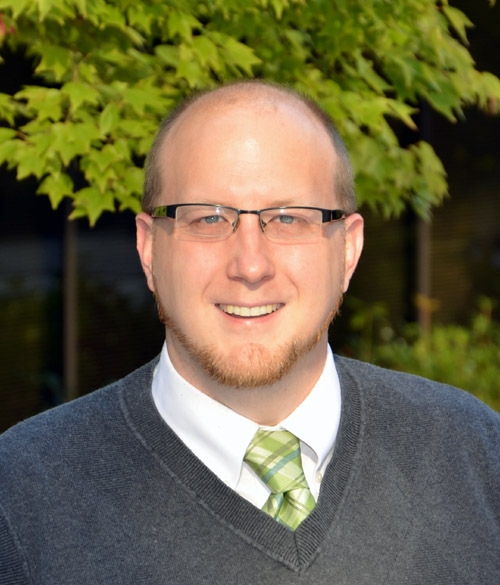 Robert A. Bednarczyk, PhD, is an Assistant Professor of Global Health and Epidemiology at the Emory University Rollins School of Public Health, and a faculty member in the Winship Cancer Institute Cancer Prevention and Control Program and the Emory Vaccine Center. His research focuses on the epidemiologic and policy issues around vaccine coverage and hesitance, particularly for adolescent vaccines including the human papillomavirus vaccine. e‑mail: rbednar@emory.edu
Robert A. Bednarczyk, PhD, is an Assistant Professor of Global Health and Epidemiology at the Emory University Rollins School of Public Health, and a faculty member in the Winship Cancer Institute Cancer Prevention and Control Program and the Emory Vaccine Center. His research focuses on the epidemiologic and policy issues around vaccine coverage and hesitance, particularly for adolescent vaccines including the human papillomavirus vaccine. e‑mail: rbednar@emory.edu
 Joseph Lipscomb, PhD, is Professor of Health Policy and Management at the Rollins School of Public Health and also Associate Director for Population Sciences at Emory’s Winship Cancer Institute. From 1999 until arriving at Emory in 2004, he was Chief of the Outcomes Research Branch at the U.S. National Cancer Institute. At NCI, he co-chaired the Cancer Outcomes Measurement Working Group, chaired the trans-agency Quality of Cancer Care Committee, and was NCI lead for a collaborative Federal effort to establish consensus measures of cancer care quality. He has published widely on various topics in health economics and outcomes research, including on patient-reported outcomes assessment, quality-of-care evaluation and improvement, and the theory and practice of cost-effectiveness analysis. Dr. Lipscomb has been principal investigator on research grants funded by the NCI and the Centers for Disease Control and Prevention, including studies to improve the effectiveness of cancer screening and treatment; to investigate the determinants of cancer care quality in the community; and to build the data infrastructure for population-based evaluations of cancer quality. He serves on national committees to improve cancer outcomes and quality at both the American Cancer Society (ACS) and the American College of Surgeons’ Commission on Cancer (CoC). From 1993-96, he was a member of the U.S. Panel on Cost-Effectiveness in Health and Medicine, whose influential recommendations continue to shape the debate about the application of cost-effectiveness analysis to health care decision making. He received his PhD in economics from the University of North Carolina at Chapel Hill in 1975. e‑mail: jlipsco@emory.edu
Joseph Lipscomb, PhD, is Professor of Health Policy and Management at the Rollins School of Public Health and also Associate Director for Population Sciences at Emory’s Winship Cancer Institute. From 1999 until arriving at Emory in 2004, he was Chief of the Outcomes Research Branch at the U.S. National Cancer Institute. At NCI, he co-chaired the Cancer Outcomes Measurement Working Group, chaired the trans-agency Quality of Cancer Care Committee, and was NCI lead for a collaborative Federal effort to establish consensus measures of cancer care quality. He has published widely on various topics in health economics and outcomes research, including on patient-reported outcomes assessment, quality-of-care evaluation and improvement, and the theory and practice of cost-effectiveness analysis. Dr. Lipscomb has been principal investigator on research grants funded by the NCI and the Centers for Disease Control and Prevention, including studies to improve the effectiveness of cancer screening and treatment; to investigate the determinants of cancer care quality in the community; and to build the data infrastructure for population-based evaluations of cancer quality. He serves on national committees to improve cancer outcomes and quality at both the American Cancer Society (ACS) and the American College of Surgeons’ Commission on Cancer (CoC). From 1993-96, he was a member of the U.S. Panel on Cost-Effectiveness in Health and Medicine, whose influential recommendations continue to shape the debate about the application of cost-effectiveness analysis to health care decision making. He received his PhD in economics from the University of North Carolina at Chapel Hill in 1975. e‑mail: jlipsco@emory.edu
 Alex Wagenaar, PhD, MSW, is a Research Professor at the Emory University Rollins School of Public Health and Professor Emeritus at the University of Florida College of Medicine. He has published almost 200 scientific articles on social and behavioral epidemiology, public health policy, legal evaluations, community intervention trials, alcohol and tobacco studies, traffic safety, and injury control. In 2009 he received the Prevention Science Award and in 2016 the Nan Tobler Award, both from the Society for Prevention Research, in recognition of his work investigating and advancing the methods and outcomes of prevention research. He received his PhD in Health Behavior and Health Education from The University of Michigan, Ann Arbor. e‑mail: awagena@emory.edu
Alex Wagenaar, PhD, MSW, is a Research Professor at the Emory University Rollins School of Public Health and Professor Emeritus at the University of Florida College of Medicine. He has published almost 200 scientific articles on social and behavioral epidemiology, public health policy, legal evaluations, community intervention trials, alcohol and tobacco studies, traffic safety, and injury control. In 2009 he received the Prevention Science Award and in 2016 the Nan Tobler Award, both from the Society for Prevention Research, in recognition of his work investigating and advancing the methods and outcomes of prevention research. He received his PhD in Health Behavior and Health Education from The University of Michigan, Ann Arbor. e‑mail: awagena@emory.edu
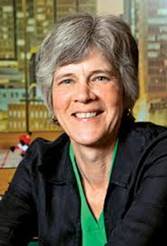 Ann Mertens, PhD, MS, is a Professor in the Department of Pediatrics at Emory University, and the Director of the Clinical Research Office at the Aflac Cancer and Blood Disorders Center at Children’s Healthcare of Atlanta. She is a pediatric cancer epidemiologist well-versed in outcomes research, with an extensive track record for pediatric cancer survivor research. Dr. Mertens served as the first Project Director of the Childhood Cancer Survivor Study (CCSS) for 14 years, has served as co-chair of the CCSS Epidemiology/Biostatistics Working Group, and is a member of the CCSS Steering Committee. Her current research initiatives are in the development of effective communication and intervention strategies to reduce morbidity and increase quality of life in childhood and adolescent cancer survivors. She is the Principal Investigator for the initial AHRQ project which developed Cancer SurvivorLink™, a web-based, patient-controlled ePHR system which allows cancer survivors to store and share their survivor care plan and other health documents to promote and support delivery of evidence-based survivor care. She was selected as a Georgia Cancer Coalition Distinguished Cancer Clinician and Scientist Scholar, and is currently a member of the Children’s Oncology Group’s Cancer Screening Outcomes Task Force. e‑mail: amerten@emory.edu
Ann Mertens, PhD, MS, is a Professor in the Department of Pediatrics at Emory University, and the Director of the Clinical Research Office at the Aflac Cancer and Blood Disorders Center at Children’s Healthcare of Atlanta. She is a pediatric cancer epidemiologist well-versed in outcomes research, with an extensive track record for pediatric cancer survivor research. Dr. Mertens served as the first Project Director of the Childhood Cancer Survivor Study (CCSS) for 14 years, has served as co-chair of the CCSS Epidemiology/Biostatistics Working Group, and is a member of the CCSS Steering Committee. Her current research initiatives are in the development of effective communication and intervention strategies to reduce morbidity and increase quality of life in childhood and adolescent cancer survivors. She is the Principal Investigator for the initial AHRQ project which developed Cancer SurvivorLink™, a web-based, patient-controlled ePHR system which allows cancer survivors to store and share their survivor care plan and other health documents to promote and support delivery of evidence-based survivor care. She was selected as a Georgia Cancer Coalition Distinguished Cancer Clinician and Scientist Scholar, and is currently a member of the Children’s Oncology Group’s Cancer Screening Outcomes Task Force. e‑mail: amerten@emory.edu
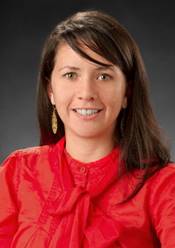 Rebecca Williamson Lewis, MPH, is a Research Epidemiologist at the Aflac Cancer and Blood Disorders Center of Children’s Healthcare of Atlanta and serves as a SurvivorLink™ administrator. She monitors the use of SurvivorLink™ via data captured in SurvivorLink™ logs and Google Analytics and has published on its uptake and impact within the pediatric cancer survivor population. In addition to her interest in the use of health self-management tools like SurvivorLink™, Ms. Lewis is involved in several survivorship research projects including infertility and cardiac outcomes and management of an on-going longitudinal institutional study on patient reported health outcomes. e‑mail: rebecca.lewis@choa.org
Rebecca Williamson Lewis, MPH, is a Research Epidemiologist at the Aflac Cancer and Blood Disorders Center of Children’s Healthcare of Atlanta and serves as a SurvivorLink™ administrator. She monitors the use of SurvivorLink™ via data captured in SurvivorLink™ logs and Google Analytics and has published on its uptake and impact within the pediatric cancer survivor population. In addition to her interest in the use of health self-management tools like SurvivorLink™, Ms. Lewis is involved in several survivorship research projects including infertility and cardiac outcomes and management of an on-going longitudinal institutional study on patient reported health outcomes. e‑mail: rebecca.lewis@choa.org
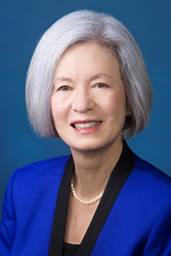 Lillian Meacham, MD, is a pediatric endocrinologist who has worked in the field of late effects of cancer therapy for twenty-five years. She began as an endocrinologist in a multidisciplinary neuro-oncology clinic and now serves as the medical director of the multi-disciplinary pediatric cancer survivor program where we have seen > 1600 survivors. Dr. Meacham’s interest in this field led her to serve as the site PI on the multi-institutional NCI funded Childhood Cancer Survivor Study and for the last ten years to chair four of the Children’s Oncology Taskforces that develop the Long-Term Follow-Up Guidelines for Pediatric Adolescent and Young Adult Cancers. She has also participated in four International Guidelines Harmonization Groups each aimed to unify recommendations for surveillance for key late effects. Dr. Meacham’s areas of research include male and female health late effects, cardiovascular risk factors and cardiac late effects, and growth hormone deficiency in survivors. She is also very invested in determining best ways to communicate risk for late effects with survivors and their families and engaging primary and subspecialty providers in survivor care. Dr. Meacham believes increasing awareness about chronic health conditions is pivotal in the ability to deliver life-long survivor care and is in part why she has presented more than 100 lectures on the topic of survivorship. e‑mail: lmeacha@emory.edu
Lillian Meacham, MD, is a pediatric endocrinologist who has worked in the field of late effects of cancer therapy for twenty-five years. She began as an endocrinologist in a multidisciplinary neuro-oncology clinic and now serves as the medical director of the multi-disciplinary pediatric cancer survivor program where we have seen > 1600 survivors. Dr. Meacham’s interest in this field led her to serve as the site PI on the multi-institutional NCI funded Childhood Cancer Survivor Study and for the last ten years to chair four of the Children’s Oncology Taskforces that develop the Long-Term Follow-Up Guidelines for Pediatric Adolescent and Young Adult Cancers. She has also participated in four International Guidelines Harmonization Groups each aimed to unify recommendations for surveillance for key late effects. Dr. Meacham’s areas of research include male and female health late effects, cardiovascular risk factors and cardiac late effects, and growth hormone deficiency in survivors. She is also very invested in determining best ways to communicate risk for late effects with survivors and their families and engaging primary and subspecialty providers in survivor care. Dr. Meacham believes increasing awareness about chronic health conditions is pivotal in the ability to deliver life-long survivor care and is in part why she has presented more than 100 lectures on the topic of survivorship. e‑mail: lmeacha@emory.edu
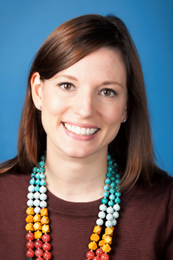 Jordan Gilleland Marchak, PhD, ABPP, is an associate professor within Emory University School of Medicine’s Department of Pediatrics. Dr. Marchak has built a program of research focused in two areas: Adolescent and young adult pediatric cancer survivors’ healthcare self-management, healthy lifestyle behaviors, and readiness for transition to adult centered care; as well as Leveraging technology to implement evidence-based supportive care programming for pediatric oncology patients and families. In her clinical role, she serves as the attending psychologist in the Aflac Cancer Survivor Program at Children’s Healthcare of Atlanta (CHOA) and is board certified in Child & Adolescent Psychology by the American Board of Professional Psychology. On a national level, Dr. Marchak is an editorial board member for the Journal of Pediatric Psychology, the current Co-Chair for the Society of Pediatric Psychology’s Hematology/Oncology/BMT Special Interest Group, serves on the Children’s Oncology Group (COG) Supportive Care Committee, and a member of the Childhood Cancer Survivor Study (CCSS) Psychology Steering Committee. She is also a co-chair of the Psychosocial Guidelines Working Group for the International Late Effects of Childhood Cancer Guideline Harmonization Group. e‑mail: jgillel@emory.edu
Jordan Gilleland Marchak, PhD, ABPP, is an associate professor within Emory University School of Medicine’s Department of Pediatrics. Dr. Marchak has built a program of research focused in two areas: Adolescent and young adult pediatric cancer survivors’ healthcare self-management, healthy lifestyle behaviors, and readiness for transition to adult centered care; as well as Leveraging technology to implement evidence-based supportive care programming for pediatric oncology patients and families. In her clinical role, she serves as the attending psychologist in the Aflac Cancer Survivor Program at Children’s Healthcare of Atlanta (CHOA) and is board certified in Child & Adolescent Psychology by the American Board of Professional Psychology. On a national level, Dr. Marchak is an editorial board member for the Journal of Pediatric Psychology, the current Co-Chair for the Society of Pediatric Psychology’s Hematology/Oncology/BMT Special Interest Group, serves on the Children’s Oncology Group (COG) Supportive Care Committee, and a member of the Childhood Cancer Survivor Study (CCSS) Psychology Steering Committee. She is also a co-chair of the Psychosocial Guidelines Working Group for the International Late Effects of Childhood Cancer Guideline Harmonization Group. e‑mail: jgillel@emory.edu
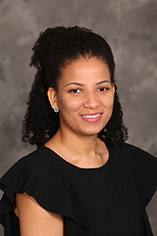 Jessica Wells, PhD, RN, WHNP-BC, is an Assistant Professor at Emory University’s Nell Hodgson Woodruff School of Nursing. Her program of research examines the intersection of cancer and HIV. Specifically, she examines cancer risk and cancer prevention in individuals living with HIV. She recently completed a K01 Career Development Award that examined the individual-level, interpersonal-level, and neighborhood-level predictors of adherence to anal cancer screening in HIV infected individuals. During this period, Dr. Wells received supplement awards to examine cancer knowledge, perception of risks, and adherence to cancer screening guidelines in HIV infected individuals. She then expanded her focus to add a biological focus to cancer risk where she received funding from the American Cancer Society to explore relationships of the microbiome and anal cancer risk in HIV infected individuals. Dr. Wells practices as a women’s health nurse practitioner at the Center for Black Women’s Wellness. e‑mail: jholme3@emory.edu
Jessica Wells, PhD, RN, WHNP-BC, is an Assistant Professor at Emory University’s Nell Hodgson Woodruff School of Nursing. Her program of research examines the intersection of cancer and HIV. Specifically, she examines cancer risk and cancer prevention in individuals living with HIV. She recently completed a K01 Career Development Award that examined the individual-level, interpersonal-level, and neighborhood-level predictors of adherence to anal cancer screening in HIV infected individuals. During this period, Dr. Wells received supplement awards to examine cancer knowledge, perception of risks, and adherence to cancer screening guidelines in HIV infected individuals. She then expanded her focus to add a biological focus to cancer risk where she received funding from the American Cancer Society to explore relationships of the microbiome and anal cancer risk in HIV infected individuals. Dr. Wells practices as a women’s health nurse practitioner at the Center for Black Women’s Wellness. e‑mail: jholme3@emory.edu
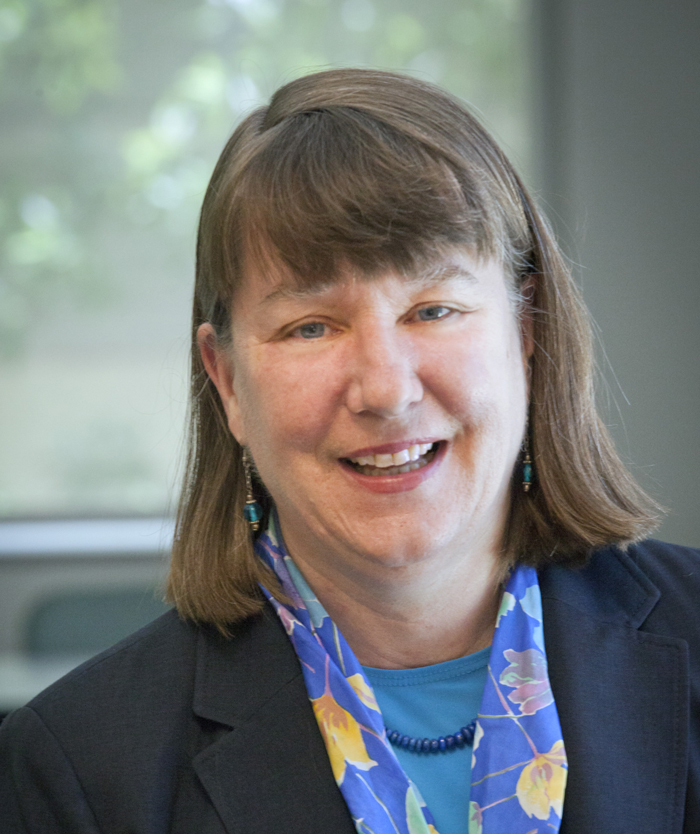 Kate Yeager, RN, PhD, FAAN, is an assistant professor at Nell Hodgson Woodruff School of Nursing, Emory University. She earned a doctoral degree in nursing at the Emory University and a master's degree in nursing and oncology at the University of California San Francisco. Kate is committed to a career in health disparities research and her goal is to build a robust program of research to improve the quality of life of individuals with cancer, specifically in underserved groups. Her program of research focuses on understanding and improving the symptom and treatment experience for individuals with cancer. For most of her nursing career she has been involved with research, first as a research coordinator and now as a nurse scientist. Dr. Yeager has studied medication management and adherence in individuals with epilepsy, HIV, and cancer. In addition, she has also studied symptoms and symptom management including qualitative work with African Americans with cancer to explore their experience of managing symptoms and reasons for not taking pain medications as prescribed. Continuing that work, she completed a K01 (Adherence in African Americans Being Treated for Cancer Pain) which enhanced the understanding of medication adherence including the importance of looking at the dynamic patterns of adherence. In addition to the K01, she completed two companion pilot studies looking at the role of the caregiver in symptom assessment and pain management. In the same time period, she completed a pilot study that included development and testing of a video intervention to increase accrual of breast cancer patients on clinical trials. Additionally, she was a co-investigator on a one-of-a-kind qualitative study to explore the experience of members of a serious communicable diseases unit care team in providing care for individuals who were infected with the Ebola virus disease. Her current R01 builds on her work in medication adherence and seeks to characterize adherence trajectories of oral chemotherapy in individuals being treated for chronic myeloid leukemia and then determine how symptoms and financial toxicity influence these adherence trajectories. Additionally, since 2014 Kate has served as a Co-Chair of the Health Disparities Committee of NRG Oncology that focuses on increasing enrollment of underserved populations to clinical trials and develops research to understand and eliminate health disparities. Her areas of expertise include: Survivorship, cancer cost, rural health, palliative care, NCORP/ oncology clinical trial networks, qualitative methodology. e‑mail: kyeager@emory.edu
Kate Yeager, RN, PhD, FAAN, is an assistant professor at Nell Hodgson Woodruff School of Nursing, Emory University. She earned a doctoral degree in nursing at the Emory University and a master's degree in nursing and oncology at the University of California San Francisco. Kate is committed to a career in health disparities research and her goal is to build a robust program of research to improve the quality of life of individuals with cancer, specifically in underserved groups. Her program of research focuses on understanding and improving the symptom and treatment experience for individuals with cancer. For most of her nursing career she has been involved with research, first as a research coordinator and now as a nurse scientist. Dr. Yeager has studied medication management and adherence in individuals with epilepsy, HIV, and cancer. In addition, she has also studied symptoms and symptom management including qualitative work with African Americans with cancer to explore their experience of managing symptoms and reasons for not taking pain medications as prescribed. Continuing that work, she completed a K01 (Adherence in African Americans Being Treated for Cancer Pain) which enhanced the understanding of medication adherence including the importance of looking at the dynamic patterns of adherence. In addition to the K01, she completed two companion pilot studies looking at the role of the caregiver in symptom assessment and pain management. In the same time period, she completed a pilot study that included development and testing of a video intervention to increase accrual of breast cancer patients on clinical trials. Additionally, she was a co-investigator on a one-of-a-kind qualitative study to explore the experience of members of a serious communicable diseases unit care team in providing care for individuals who were infected with the Ebola virus disease. Her current R01 builds on her work in medication adherence and seeks to characterize adherence trajectories of oral chemotherapy in individuals being treated for chronic myeloid leukemia and then determine how symptoms and financial toxicity influence these adherence trajectories. Additionally, since 2014 Kate has served as a Co-Chair of the Health Disparities Committee of NRG Oncology that focuses on increasing enrollment of underserved populations to clinical trials and develops research to understand and eliminate health disparities. Her areas of expertise include: Survivorship, cancer cost, rural health, palliative care, NCORP/ oncology clinical trial networks, qualitative methodology. e‑mail: kyeager@emory.edu